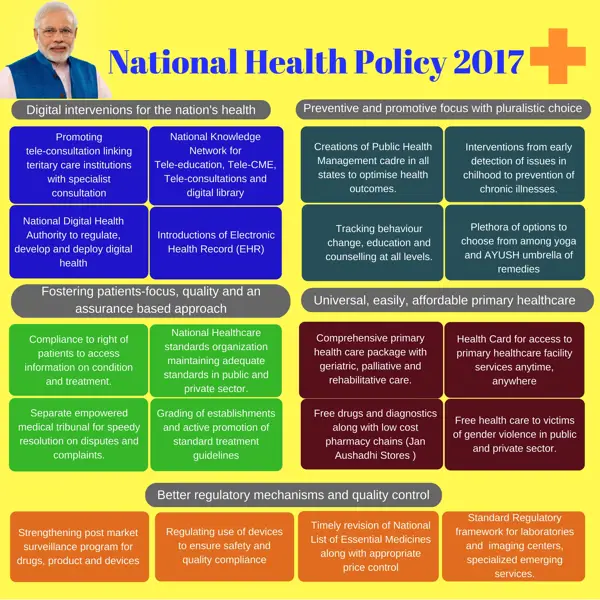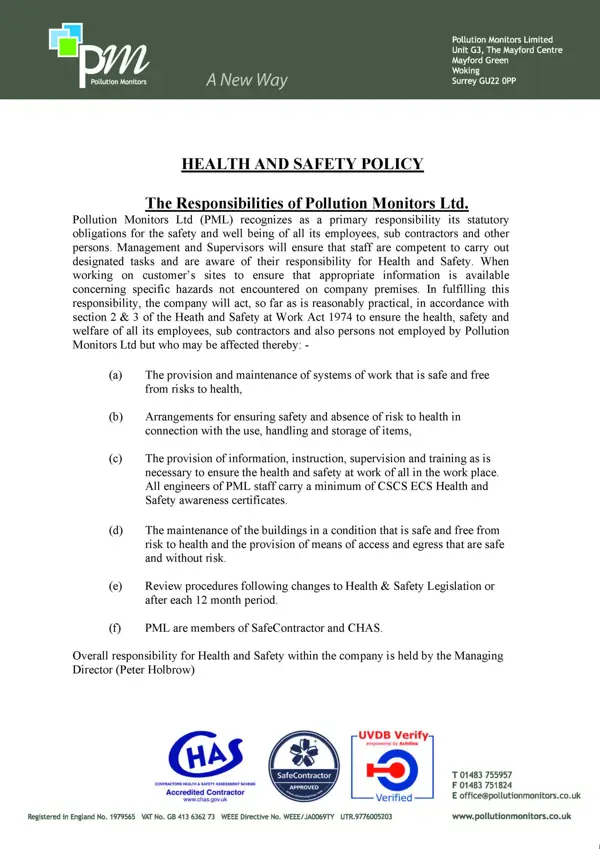Table of Contents
- Introduction to Health Policy
- Components of Health Policy
- Health Policy Formation Process
- Policy Implementation and Evaluation
- Role of Stakeholders in Health Policy
- Challenges in Health Policy Development
- Global Health Policy
Introduction to Health Policy
Health policy refers to the decisions, plans, and actions undertaken by governments, organizations, and other stakeholders to improve and maintain public health. It involves various strategies aimed at addressing health challenges and ensuring access to quality healthcare services.
Components of Health Policy
This section explores the key components of health policy, including policy goals, regulatory frameworks, financing mechanisms, and delivery systems. Understanding these components is crucial in comprehending the intricacies of health policy formulation and implementation.
Health policy refers to a set of decisions, actions, and plans formulated and implemented by governments, organizations, or other entities to promote, protect, and improve the health and well-being of individuals and populations. It involves various components that work together to address health challenges and ensure access to quality healthcare.
Components of Health Policy
1. Goal Setting: Health policy starts with identifying specific goals and objectives that are measurable and achievable. These goals could range from reducing mortality rates for a particular disease to increasing the percentage of the population with health insurance coverage.
2. Research and Data Analysis: To develop effective health policies, research and data analysis play a crucial role. This involves gathering evidence, conducting studies, and analyzing health trends and patterns. It helps in understanding the existing healthcare needs, identifying gaps, and formulating evidence-based strategies.
3. Stakeholder Engagement: Health policies need input and involvement from various stakeholders, including healthcare professionals, researchers, community members, policymakers, and advocacy groups. Collaboration with stakeholders ensures that policies reflect diverse perspectives, address concerns, and enhance their acceptability and effectiveness.
4. Resource Allocation: Health policy also deals with allocating resources efficiently and effectively. This includes determining funding sources, budgeting, and prioritizing interventions based on their potential impact and cost-effectiveness.
5. Implementation and Evaluation: Once policies are formulated, implementation becomes critical. Effective implementation involves translating policies into actionable programs and initiatives, monitoring their progress, and assessing their impact on health outcomes. Evaluation helps identify successes, challenges, and areas for improvement, enabling policy refinements.
6. Advocacy and Communication: Health policies require public support and awareness. Advocacy and communication campaigns are vital components that inform and educate individuals and communities about the policies, their objectives, and potential benefits. They also foster dialogue and collaboration between policymakers and the public.
In conclusion, health policy encompasses multiple components, each essential in addressing health challenges, ensuring access to healthcare services, and improving overall health outcomes. By setting goals, conducting research, engaging stakeholders, allocating resources, implementing and evaluating policies, and fostering advocacy and communication, health policies aim to protect and promote the well-being of individuals and populations.

Health Policy Formation Process
The process of health policy formation involves several stages, such as problem identification, agenda setting, policy formulation, adoption, and implementation. Each stage plays a vital role in shaping effective health policies that address public health needs.
Health policy refers to the decisions, plans, and actions undertaken to achieve specific health-related goals within a society. It encompasses a wide range of activities and strategies that are implemented to improve overall public health and address various health concerns.
The process of health policy formation involves several key steps, including:
- Agenda Setting: Identifying and prioritizing health issues that require attention and intervention. This is often influenced by various factors such as public opinion, expert recommendations, and emerging health challenges.
- Policy Development: Creating and refining policies to address the identified health issues. This stage involves research, analysis of available evidence, stakeholder engagement, and considering different policy options.
- Legislation and Implementation: Once a policy is developed, it needs to be translated into legislation and implemented effectively. This may involve drafting laws, regulations, or guidelines, as well as establishing systems for monitoring and evaluating policy implementation.
- Evaluation and Review: Continuously assessing the impact and effectiveness of health policies through systematic evaluation. This helps determine whether the policies are achieving their intended goals and identifies areas that require modification or improvement.
- Revision and Policy Reformulation: Based on the evaluation results and evolving health needs, policies may be revised or reformulated to adapt to changing circumstances. This allows for the incorporation of new evidence, best practices, and lessons learned from previous policy implementations.
Health policy plays a crucial role in shaping the provision of healthcare services, resource allocation, health promotion efforts, and ensuring equitable access to healthcare. It is a complex process that involves collaboration among policymakers, healthcare professionals, researchers, and various stakeholders to address societal health needs effectively.

Policy Implementation and Evaluation
Once a health policy is formulated, it needs to be implemented and evaluated to assess its impact and effectiveness. This section delves into the various methods and considerations involved in policy implementation, monitoring, and evaluation to ensure successful outcomes.
Health policy refers to the decisions, plans, and actions implemented by governments, organizations, and other stakeholders to address health issues and improve population well-being. Policy implementation and evaluation play a crucial role in ensuring the effectiveness and success of health policies.
Policy Implementation
Policy implementation involves translating health policies into practical actions and interventions. It includes the execution of specific strategies, allocation of resources, and coordination of various stakeholders. Effective policy implementation requires careful planning, collaboration, and monitoring to ensure that policies are carried out as intended.
During the policy implementation process, challenges and barriers may arise, such as limited resources, resistance from stakeholders, and conflicting interests. It is essential to address these obstacles through effective communication, stakeholder engagement, and continuous evaluation to achieve desired policy outcomes.
Policy Evaluation
Policy evaluation assesses the impact and effectiveness of health policies to determine their outcomes, strengths, and weaknesses. Evaluation provides evidence-based insights that inform policy revisions, improvements, or discontinuation if necessary. It helps policymakers understand whether policies are achieving their intended goals, and identifies areas that require further attention.
Evaluation methods can include quantitative and qualitative research, data analysis, stakeholder feedback, and performance monitoring. Evaluations may focus on factors such as policy implementation fidelity, cost-effectiveness, health outcomes, equity, and satisfaction among beneficiaries.
Importance of Policy Implementation and Evaluation in Health Policy
Policy implementation and evaluation are critical for ensuring that health policies have the desired impact on public health. They help in identifying gaps in policy implementation, adjusting strategies, and improving policies to meet evolving health needs.
Through evaluation, policymakers can identify best practices, learn from past experiences, and make evidence-based decisions for future policy development. It enables them to allocate resources effectively, prioritize health interventions, and address disparities in healthcare access and outcomes.
Ultimately, policy implementation and evaluation contribute to improving the overall health and well-being of individuals and communities by facilitating the effective delivery of health services and addressing health system challenges.

Role of Stakeholders in Health Policy
Stakeholders, including government agencies, healthcare providers, insurance companies, and advocacy groups, significantly influence health policy decisions. Understanding the roles and perspectives of these stakeholders is essential in promoting collaborative policymaking and achieving meaningful health outcomes.
Health policy refers to the decisions, plans, and actions undertaken by governments, organizations, and individuals to promote, protect, and improve health outcomes in a society. It encompasses various areas such as healthcare delivery, access to services, public health measures, and healthcare financing.
Stakeholders play a crucial role in shaping and influencing health policy. A stakeholder is an individual, group, or organization that has a vested interest or is directly affected by the outcome of a particular policy or decision. In the context of health policy, stakeholders can include government agencies, healthcare providers, insurance companies, patient advocacy groups, pharmaceutical companies, research institutions, and the general public.
Here are some key roles stakeholders play in health policy:
- Policy Advocacy: Stakeholders, particularly patient advocacy groups and professional associations, advocate for policies that align with their interests or represent the needs and concerns of specific populations. They actively engage in discussions, propose ideas, and lobby policymakers to implement changes that promote better health outcomes and address existing healthcare challenges.
- Expertise and Knowledge: Stakeholders, such as healthcare providers, researchers, and academics, contribute their expertise and knowledge to inform the development and implementation of evidence-based health policies. They conduct research, provide data, and offer insights into the best practices, innovative approaches, and emerging trends in healthcare.
- Resource Allocation: Stakeholders, including government agencies and healthcare financiers, participate in decision-making processes to allocate resources effectively. They prioritize funding for various healthcare programs, services, and interventions based on needs assessments, cost-effectiveness analysis, and societal priorities.
- Monitoring and Evaluation: Stakeholders actively monitor and evaluate the impact of health policies on the population. They collect and analyze data to assess the effectiveness, efficiency, and equity of healthcare systems, identify gaps or disparities, and recommend adjustments or reforms to improve overall health outcomes.
In conclusion, stakeholders play a significant role in shaping health policy by advocating for their interests, providing expertise and knowledge, allocating resources, and monitoring its implementation. Collaboration and engagement among stakeholders are vital to ensure that health policies reflect the diverse needs of individuals, communities, and societies as a whole.

Challenges in Health Policy Development
Developing effective health policies is not without its challenges. This section discusses some of the common obstacles faced during policy development, such as political, social, and economic factors, as well as ethical considerations. By addressing these challenges, policymakers can enhance the impact of their decisions.
Global Health Policy
Global health policy focuses on addressing health challenges on an international scale. This section examines the interconnectedness of health issues across borders, the role of international organizations, and collaborative efforts to promote global health equity and well-being.
Key Takeaways
- Health policy involves decisions and actions taken to improve public health.
- Components of health policy include goals, regulations, financing, and delivery systems.
- Health policy formation follows a multi-stage process, from problem identification to adoption.
- Policy implementation and evaluation are crucial for assessing the effectiveness of health policies.
- Stakeholders play a significant role in shaping health policies.
- Challenges in health policy development include political, social, and economic factors.
- Global health policy addresses health issues on an international scale.
Frequently Asked Questions (FAQ)
-
What is the importance of health policy?
Health policy is essential as it helps in establishing guidelines, allocating resources effectively, and promoting access to healthcare services for all individuals, thereby improving public health outcomes.
-
Who is involved in the health policy formulation process?
The health policy formulation process involves government bodies, healthcare professionals, researchers, policymakers, community representatives, and other relevant stakeholders.
-
What are the major challenges faced in health policy development?
Common challenges include limited funding, political complexities, diverse stakeholder interests, evolving healthcare needs, and ethical dilemmas in decision-making processes.
-
How does global health policy impact local healthcare systems?
Global health policies facilitate collaboration among countries, resource sharing, and the exchange of best practices, ultimately improving the quality and accessibility of healthcare at the local level.



Recent Comments